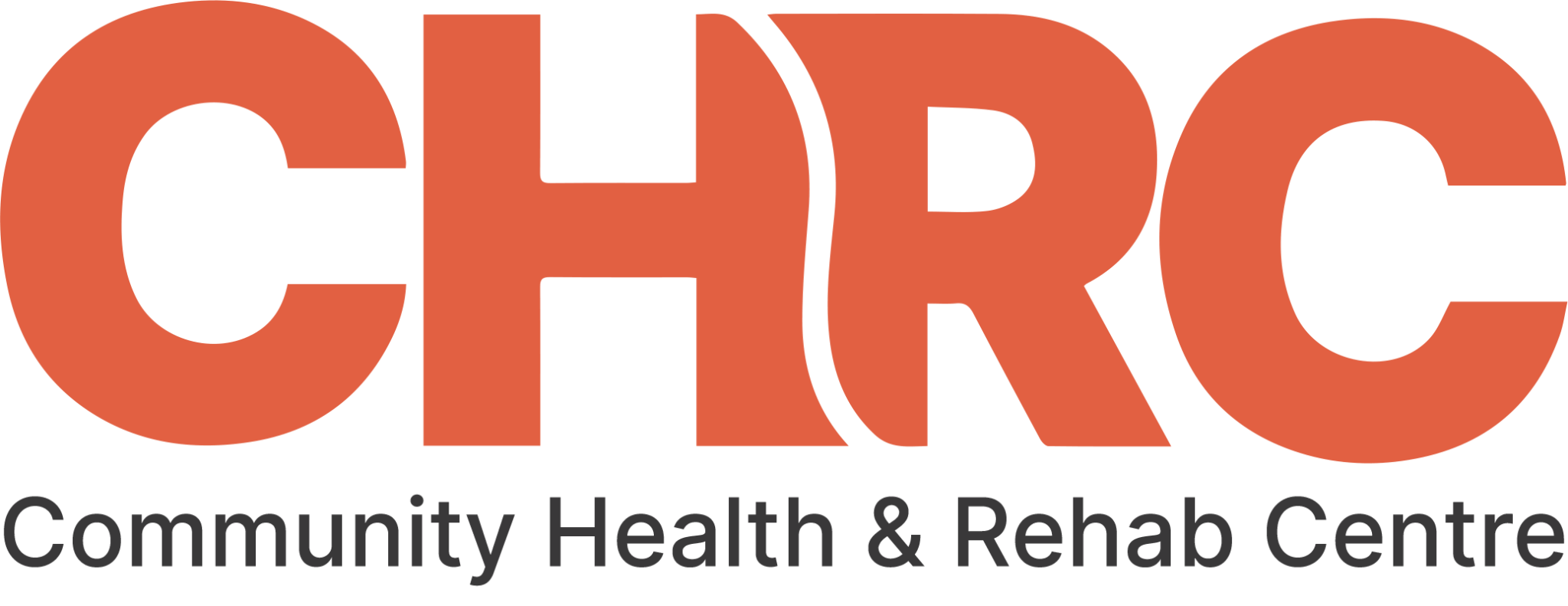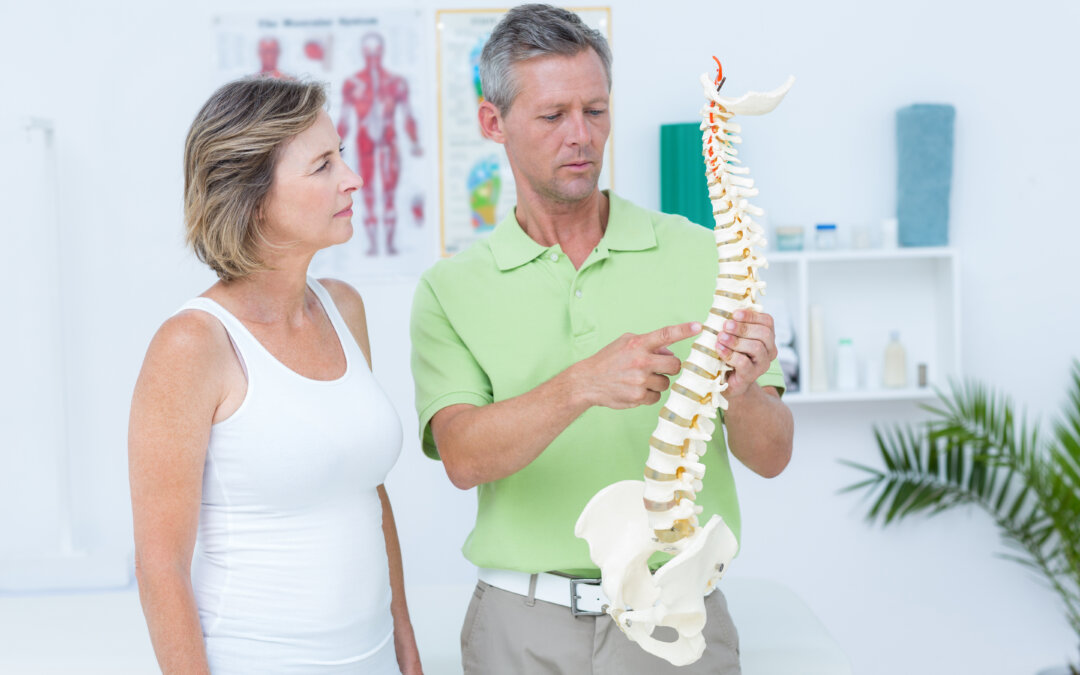A herniated disk, also known as a slipped disk or ruptured disk, is a common spinal condition that can cause significant pain and discomfort. Chiropractic care can help alleviate the pain of a herniated disk and help with your recovery.
What is a Herniated Disk?
The spine is composed of a series of vertebrae stacked on top of each other, separated by intervertebral disks. These discs act as cushions or shock absorbers, absorbing the impact of everyday movements and providing flexibility to the spine. A herniated disk occurs when the soft inner core of a disk protrudes through the tough outer layer, often as a result of wear and tear or sudden trauma.
Causes of Herniated Disks
Degenerative Changes
As we age, the disks in our spine gradually lose water content and become less flexible, making them more prone to herniation.
Trauma
A sudden injury or trauma, such as a fall or car accident, can force a disc out of its normal position.
Repetitive Strain
Repetitive motions or heavy lifting over time can weaken the outer layer of a disk, making it more susceptible to herniation.
Genetic Factors
Some individuals may have a genetic predisposition to developing herniated disks due to structural abnormalities in their spine.
Symptoms of Herniated Disks
The symptoms of a herniated disc can vary depending on the location and severity of the disc herniation.
Here are some common signs and symptoms of herniated disks.
Pain
Pain is often the primary symptom of a herniated disc and may run along the affected nerve pathway. For example, a herniated disk in the lower back can cause sciatic pain that runs down the leg.
Numbness and Tingling
Herniated discs can compress nearby nerves, leading to numbness, tingling, or weakness in the corresponding areas of the body.
Muscle Weakness
Severe disk herniation can impair nerve function, resulting in muscle weakness or difficulty with coordination.
Changes in Reflexes
In some cases, a herniated disc can affect reflexes, causing diminished or exaggerated reflex responses.
Diagnosis of Herniated Discs
Diagnosing a herniated disk typically involves a combination of clinical evaluation, medical history review, and diagnostic imaging studies. A healthcare provider, such as a chiropractor, will conduct a physical examination to assess range of motion, muscle strength, and neurological function. Imaging tests, such as X-rays, MRI scans, or CT scans, can help visualize the spinal structures and identify the location and extent of disc herniation.
Chiropractic Treatment for Herniated Discs
Chiropractic care offers a conservative and non-invasive approach to managing herniated discs, focusing on restoring proper spinal alignment, reducing nerve irritation, and promoting natural healing.
Here are some ways chiropractors may help individuals with herniated discs.
Spinal Adjustment
Chiropractors perform manual adjustments or spinal manipulations to realign the vertebrae and reduce pressure on the herniated disc. These gentle, targeted adjustments aim to restore normal joint function, alleviate nerve compression, and relieve associated pain.
Flexion-Distraction Technique
This specialized chiropractic technique involves gentle spinal traction and flexion movements to decompress the affected disc and promote disc rehydration. Flexion-distraction therapy is particularly beneficial for treating herniated discs in the lumbar spine.
Soft Tissue Therapy
Chiropractors may incorporate soft tissue therapies such as massage therapy, myofascial release, or trigger point therapy to relax tense muscles, reduce inflammation, and improve circulation around the affected area. These techniques can help alleviate muscle spasms and enhance the effectiveness of spinal adjustments.
Ergonomics and Posture
Chiropractors provide guidance on proper body mechanics, ergonomics, and posture to minimize strain on the spine and help with the healing of the herniated disc. They may recommend ergonomic modifications to workstations, sleeping positions, and daily activities to prevent symptoms from getting worse.
Exercise
Customized exercise programs are designed to strengthen the supporting muscles of the spine, improve flexibility, and promote stabilization of the affected area. These exercises may include core strengthening exercises, stretching routines, and low-impact activities to aid in the rehabilitation process.
Nutrition
Proper nutrition plays a crucial role in supporting spinal health and facilitating tissue repair. Chiropractors may offer nutritional counseling and dietary recommendations to promote optimal healing and reduce inflammation associated with disc herniation.
Lifestyle
Lifestyle factors such as smoking, obesity, and sedentary behavior can exacerbate symptoms of herniated discs and hinder recovery. Chiropractors address these factors and provide guidance on lifestyle modifications such as smoking cessation, weight management, and stress reduction techniques to optimize treatment outcomes.
Collaborative Care
Chiropractors often collaborate with other healthcare providers, such as physical therapists, pain management specialists, and orthopedic surgeons, to ensure comprehensive management of herniated discs. This multidisciplinary approach allows for a coordinated treatment plan tailored to the individual needs of the patient.
Pain Management
Chiropractors utilize various modalities for pain management, including ice therapy, heat therapy, electrical stimulation, and ultrasound therapy. These modalities can help alleviate acute pain, reduce inflammation, and promote tissue healing, providing symptomatic relief for individuals with herniated discs.
Preventive Care
Beyond alleviating acute symptoms, chiropractic care emphasizes the importance of preventive maintenance to prevent recurrence of herniated discs. Regular chiropractic adjustments, combined with ongoing self-care practices and ergonomic modifications, can help individuals proactively manage their spinal health and minimize the risk of future disc herniation.
Chiropractic care offers a safe, effective, and non-invasive approach to managing herniated discs, focusing on addressing underlying spinal misalignments, reducing nerve irritation, and promoting natural healing. Through a combination of spinal adjustments, soft tissue therapies, exercise prescription, and lifestyle modifications, chiropractors help individuals with herniated discs regain mobility, alleviate pain, and improve quality of life. If you’re experiencing symptoms of a herniated disc, consulting with a qualified chiropractor can provide valuable insights and personalized treatment recommendations tailored to your specific needs.

